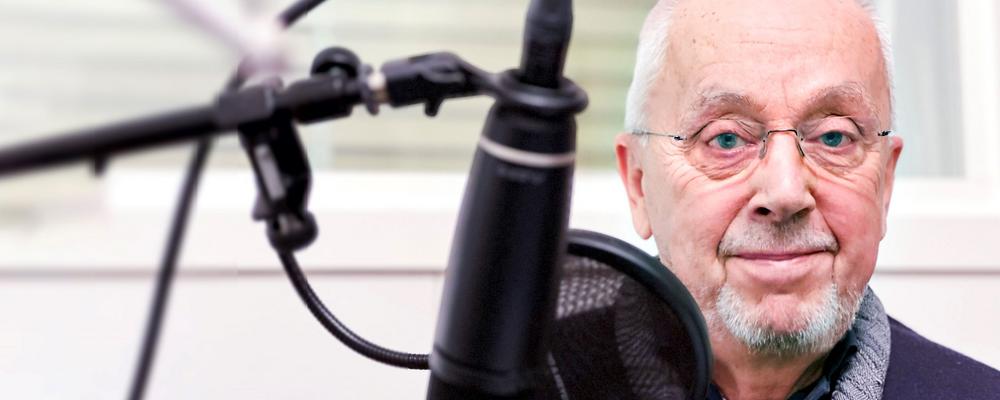Christopher Gillberg, senior professor of child and adolescent psychiatry at the Sahlgrenska Academy, University of Gothenburg, is an active researcher and clinician at the research centre he cofounded. It bears his name: the Gillberg Neuropsychiatry Centre.
In the Sahlgrenska Academy’s Akademiliv podcast, he describes his career to date, since being a young doctor in child and adolescent psychiatry in the early 1970s. It has been a period of major changes in views regarding diagnoses and the underlying causes of ADHD and autism, for example.
“Fifty years ago, I was almost the only person in Sweden who even talked about autism. I thought then, as now, that it’s extremely important to discover the genuine cases. But I’m sitting here now, saying there must be an end to the overdiagnosing,” Gillberg says.
“Compared with 15 years ago, diagnosis today requires fewer signs of autism. The frequency of what we call ‘autistic traits’ or ‘symptoms’ has been stable, but there’s been an avalanche in the number of registered diagnoses.”
Working in a team is crucial
There is no easy answer, in his view, to the question of how to bring numbers down to a more reasonable level. The fact remains that girls and women are often underdiagnosed.
In our group, we have been pushing for many years for the formation of teams, professionals from a variety of occupational backgrounds — a doctor, psychologist, speech therapist, nurse, and educator. Jointly, the team can build up substantial experience of its own, while also applying precisely the criteria we pretty much agree about, anyway.
“That’s not what usually happens though,” Gillberg continues. “These days, often based on investigations done by people whose experience is only partial or limited overall and working on a relatively independent basis without a team for support. In my opinion, that results in biased diagnoses.”
Changes over time as regards diagnostic category include the emergence of new terms and their acronyms, from “minimal brain dysfunction” (MBD), “deficits in attention, motor control, and perception” (DAMP), and “attention-deficit/hyperactivity disorder” (ADHD) to the umbrella term “neuropsychiatric disorders” (NPD), and the newer category of “early symptomatic syndromes eliciting neurodevelopmental clinical examinations” (ESSENCE).
Both difficulties and strengths
It was Christopher Gillberg who coined the latter collective term. ESSENCE is a concept that emphasizes the overlap between neurodevelopmental and neuropsychiatric problems, which are all too often “given” limited and exclusive diagnoses, such as ADHD, autism, motor disorders, and social and behavioral disorders.
” Virtually every child who gets one of these diagnoses, and who fits the relevant accepted diagnostic criteria, also meets those for at least one other diagnosis,” Gillberg says.
He also thinks the term ”NPD” should be abolished.
“Neuropsychiatric disorder sounds a bit pejorative, even very much so. Many children with so-called NPDs also have considerable strengths, and we need to highlight the strengths as well as the difficulties. People must become aware of both.

